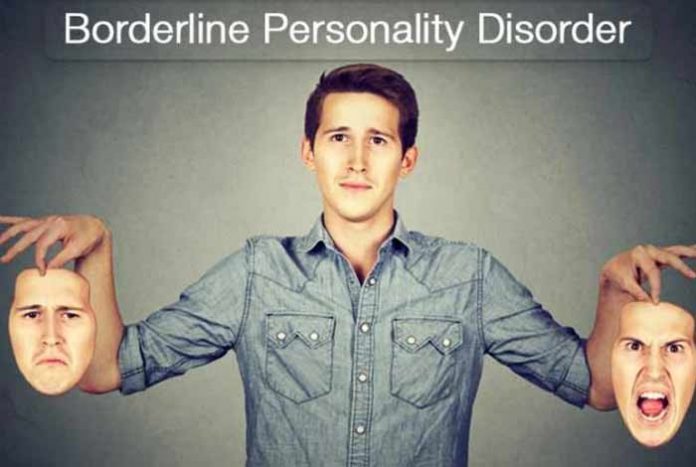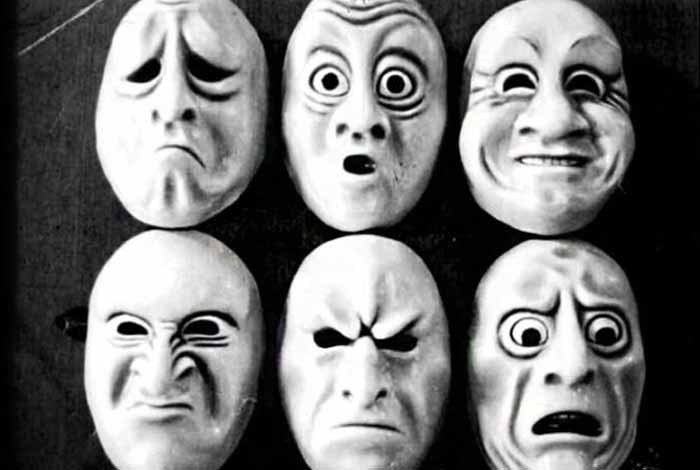
Overview and Facts
Borderline Personality Disorder (BPD) is a critical mental disorder characterized by prevalent instability in behavior, moods, functioning and self-image. This consecutive instability leads to family problems and imbalances in life, and may even affect the sense of identity of an individual.
Moreover, BPD might lead to various other mental disorders, such as eating disorders, mood disorders and anxiety disorders. In extreme cases, it may also result in self-harm, suicidal thoughts, substance abuse and even suicide.
The term ‘Borderline Personality Disorder’ was coined by mental experts in the past as the doctors believed that the disorder exists on the borderline between “neurotic mental health problems” and psychosis. However, the modern-day mental experts disagree with the term. Some people also use the term Emotionally Unstable Personality Disorder (EUPD) for this disorder. However, there is no specific term that defines BPD.
Types and Symptoms of Borderline Personality Disorder
1. Types of Borderline Personality Disorder:
Broadly, there are four types of borderline personality disorder. However, a person with BPD may not fall into even any of these categories, while a few may also fall into single or multiple categories; depending on the symptoms experienced by the person with BPD. Moreover, symptoms specific to a particular type of BPD, may change over time. The four types are:
- Discouraged BPD
- Impulsive BPD
- Self-destructive BPD
- Petulant BPD
2. Symptoms of Borderline Personality Disorder:
People, who suffer from borderline personality disorder experience vigorous mood swings and are uncertain about their personality. Below is a list of common symptoms and signs of BPD:
- Unstable relationships with friends, family and closed ones, and frequent swings between intense closeness and extreme dislikes.
- Delirious efforts to avoid imaginary or real abandonment.
- Outrageous and dangerous behaviors, such as substance abuse, reckless driving, unsafe sex and binge eating.
- Deformed image of self and personal doubts regarding self.
- Self-harming and repetitive suicidal thoughts and behavior.
- Chronic sense of emptiness.
- Severe mood swings that can last for hours or even days.
- Having paranoid thoughts related to stress.
- Unnecessary anger and issues in controlling anger.
- Antisocial behavior and dissociative symptoms, such as not feeling connected with self.
These symptoms can be triggered by ordinary events. Nevertheless, these symptoms can also be seen in people, who are suffering from any other mental disorder or illness. It is not certain that a person with these symptoms is necessarily suffering from borderline personality disorder.
It is necessary to take the advice of a certified mental health professional if these symptoms are observed in an individual. Advice from a psychiatrist or a mental health professional can help to properly identify the problem and provide better medical care.
Risk Factors of Borderline Personality Disorder
There is no specific factor that is responsible for this condition. However, there are assumptions that the disorder is linked with genetic anomalies. The risk of the disorder lies in the genes of the parents. Also, stressful and traumatic situations are also considered as a risk to cause BPD.
Moreover, changes in the structure of the brain are also considered as a possible reason behind this psychological disorder. However, there is no strong evidence to prove the accuracy of any of these risk factors.
Do I have Borderline Personality Disorder?
If you want to know whether you or your loved one is suffering from Borderline Personality Disorder, you need to closely observe its characteristic symptoms. Some of the common signs are sudden mood swings, such as anger, suicidal behavior and self-harm, low temper and self-image issues.
However, these symptoms are similar to the symptoms of some other psychological diseases like paranoid personality disorder (PPD) or antisocial personality disorder (APD). Thus, the diagnosis of the BPD requires assistance from a mental health professional, who can help to properly diagnose this mental disorder.
Causes and Prevention of Borderline Personality Disorder
1. Causes of Borderline Personality Disorder:
While there is no particular cause for the development of BPD, experts claim that BPD occurs because of the combination of some serious factors, including:
- Childhood/teenage difficulties, such as chronic fear, physical or sexual abuse, negligence, family issues like losing a parent or alcoholic parents.
- Genetic factors
- Personality traits
Moreover, if BPD exists because of some childhood or teenage difficulties/issues, the condition might worsen during adulthood. Incidentally, the number of women diagnosed with BPD annually is generally higher than men.
Besides, it is also believed that BPD is a genetic condition and inherited from parents. However, the detection of the problem as a genetic disorder is still under research.
2. Prevention of Borderline Personality Disorder:
BPD is a mental disorder and there is no specific way or method to prevent it. However, by detecting and treating it at an earlier stage can help prevent damage to its patients in terms of mental as well as physical disorders.
Diagnosis and Tests of Borderline Personality Disorder
In most cases, borderline personality disorder is either under-diagnosed or misdiagnosed. A certified medical professional, who holds a license to treat mental disorders can appropriately diagnose BPD by examining the symptoms through an interview. A mental health professional studies the medical history of the patient as well his/her family members in order to detect the any history of mental illness cases in the family.
By closely examining all the details, a mental health expert can suggest a proper treatment plan for the disorder. However, at times, when the symptoms of some other mental illnesses tend to be similar to those of BPD, it becomes extremely difficult to identify the problem and distinguish between BPD and the other disorder.
There are many in-progress pieces of research focused on to find out a proper method of diagnosing BPD.
Treatment and Care of Borderline Personality Disorder
It was earlier believed that BPD isn’t curable. However, with time and development in the field of medical sciences, it’s now curable.
The treatment involves support from family, medical experts, and mental health support providers. Below is the list of some common approaches used to treat of BPD:
i. Psychotherapy:
Psychotherapy or generally referred to as “talk therapy” is one of the most effective methods to treat borderline personality disorder. It includes one-on-one conversation between a therapist and patient or group sessions, where people with BPD interact with each other and learn to communicate their issues. Below is the list of psychotherapies used to treat BPD:
- Cognitive Behavioral Therapy (CBT) can help modify the core beliefs of a patient suffering from BPD, which helps the patient in establishing a healthy perception of him/herself. This further reduces suicidal thoughts and self-harm tendencies.
- Dialectical Behavior Therapy (DBT) includes teaching emotion controlling skills to people with BPD. This psychotherapy also helps them to improve their relationships and getting rid of self-harm tendencies.
- Schema-Focused Therapy helps in reframing the view of self, i.e. the way people look or think about themselves. The therapy utilizes principles of CBT, DBT, and many other forms of psychotherapy.
- Systems Training for Emotional Predictability and Problem Solving (STEPPS) is kind of a group therapy that educate family members, friends, close acquaintances and healthcare professionals about the methods of dealing with a person with BPD, and how to help them in reducing the symptoms.
ii. Medications:
As many medicines have harmful side effects on the mental as well as physical health, medicines are usually considered as a second option for the treatment of BPD. However, medications are still used to treat some symptoms of BPD, such as mood swings, depression and so on.
Medication should always be consumed for BPD treatment only if recommended by a medical professional.

Care for People with BPD:
Besides the treatment, a person suffering from BPD requires a lot of emotional care. A person with this disorder generally exhibit sudden mood swings and uncontrolled anger. They show various behavioral symptoms, such as irritability and sudden affections.
The first step to help a person suffering from BPD is by observing their behavioral symptoms and identifying their problem. Also, the care requires coping up with their unusual behavior, ability to co-operate with them and manage their sudden mood swings.
A good way to provide care to a person with BPD or other personality disorders is to support them with their treatment. Providing them emotional support and help them during the course of their treatment can be really effective.
OTC Medications and Self-Management Methods for BPD
1. Over-the-Counter Medications for BPD:
OTC Drugs aren’t recommended for the treatment of BPD as they might cause certain side effects that can worsen the condition. However, sometimes drugs are advised by health experts to treat certain conditions like depression and anxiety that occur due to BPD.

2. Self-Management Methods for BPD:
Psychotherapy and medication might be helpful for the treatment of BPD. However, the proper treatment also requires the person suffering from the problem to care for self. Self-management also enhances the effectiveness of other treatments.
People with BPD can help themselves by regularly attending the psychotherapy sessions and co-operating with the treatment provider.
Knowing and accepting the problem, and proper adherence to the treatment also helps in curing the person in a better way. Following the guidelines provided by the expert can be extremely helpful.
The best self-management tip is to communicate and believe in the treatment and mental health professional. Trying to cope with the treatment and controlling emotional impulses can be helpful in re-developing personal and social relationships.
Natural Ways of Treating BPD
There is no natural way of treating this condition. However, the only way to get better is asking for help. All you need is to ask for help from mental health experts, psychotherapists, family or friends.
The only way to get better is to communicate and talk out of it. Emotional support provided by people can improve the situation and can make the person suffering from the condition, feel better.
Health Tip by Experts
“If another person does not see the need for getting help, it is their right to not do it. Sorry. In those cases, you might want to find friends and/or family group. In our clinic, for example, we teach a skills course for friends and families. It is open to friends and families of anyone who is difficult to care for, work with or be around, and the focus is on how to live a skillful life no matter what people are intimately involved in your life.”
Dr. Marsha M. Linehan, professor of psychology and director of the Behavioral Research and Therapy Clinics, University of Washington.











